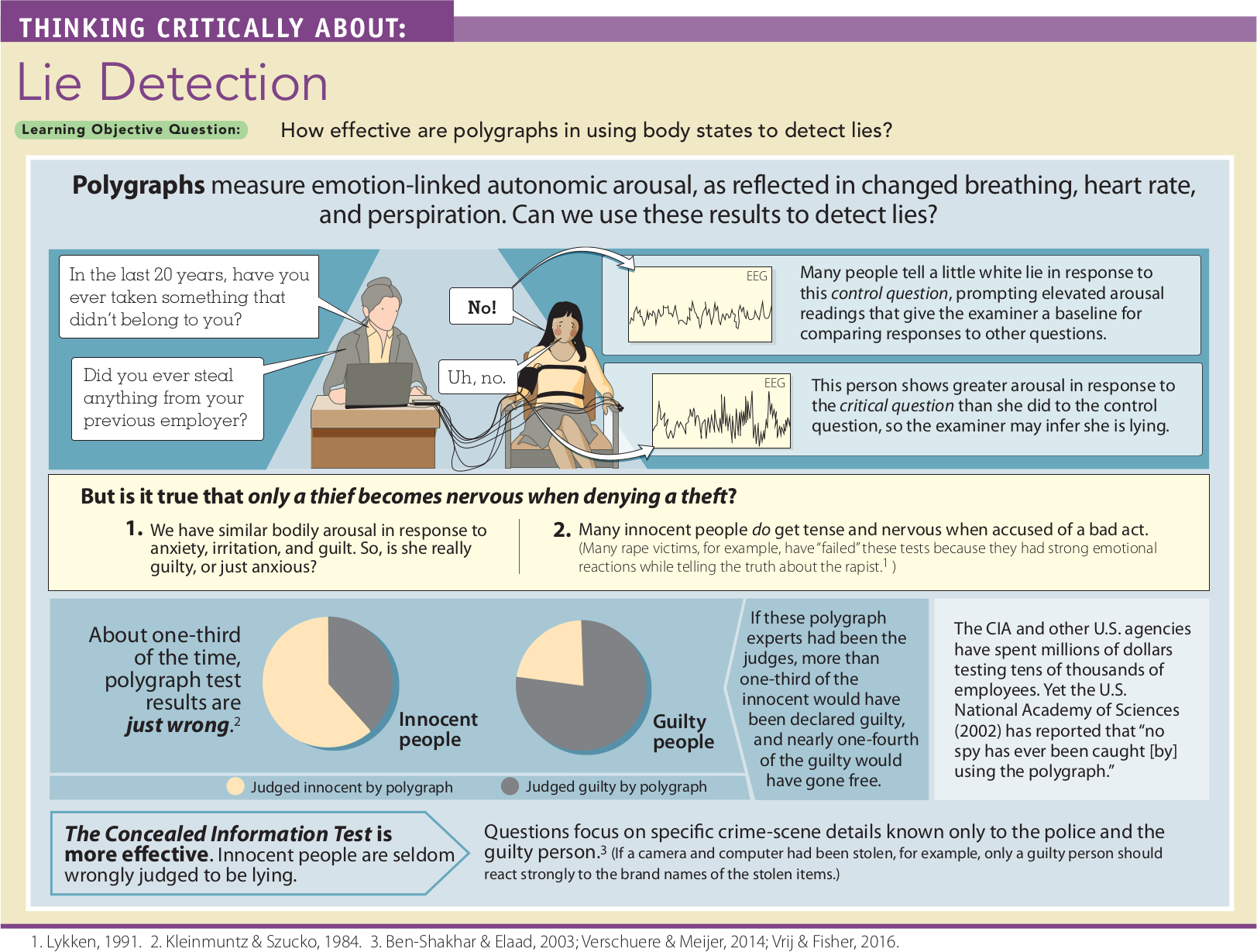Chapter 14. Lie Detection
Infographic
Infographic Activity
by David Myers and Nathan DeWall
true
true
Thinking Critically About: Lie Detection
Researchers have evaluated polygraph accuracy in detecting lies and discovered that they are not very accurate at all.

Figure 14.1:
Quiz
Quiz
1.
VmokkxSiPIrPimNeBBoe5FebgEDC9UusZpujz+p7DHKbE5E2gfDlen9h+Gu/a0th3G1Sly5zNqBvzRzMWaMfofM3Bb+F+eyc0fmzdwVRAc1cyQod504HJSdhRwmQ1nCHiIHYRIS/3dgWUSSHBaWHb7CRLjJhQ9nqGWlRNQ5xhrhITsBzJN8XDXFqy3HyOCn7DRLhkPzhvgoSS7ZDCD+P9DjyQpJw9m9XIWlDYoF+H1C682duUPU3oeHw3SyIXx4kbduSfll1fjZOYZ3suRI+79PYCIEVikn7YqfvHxpBRABKin/hrwPuYKk+nDqQ0Gwpeu75z9zRqMWrJti2EmHFCpppZKY=No, this would not confirm lying, because truth-telling people can also get anxious or respond emotionally when asked about an emotional event.
2.
+/m0CCwfVFK0QSyGjnAm+ojCYXnzBejQXh3UzGBkfMn89QRErMq8z6rz04v02YUzVs/xAFkzVY8S40zJJrJ5FdIeyxJH4s5M8QuPHUBZgnrSCj9L3ASC9Rn1BO0=Higher accuracy may be obtained by asking about details of a crime that only a guilty person would know. For example, an examiner may check to see if a person’s arousal is greater when asked about a specific weapon among other weapons, or a specific stolen item among other possibilities.